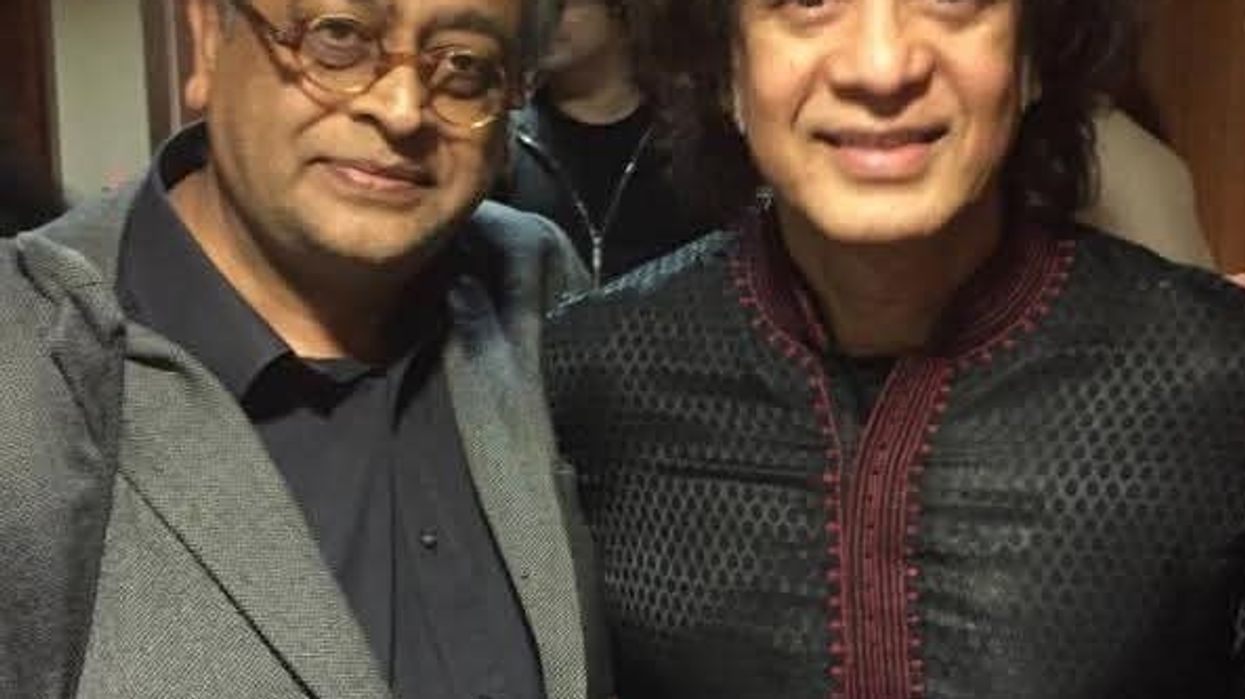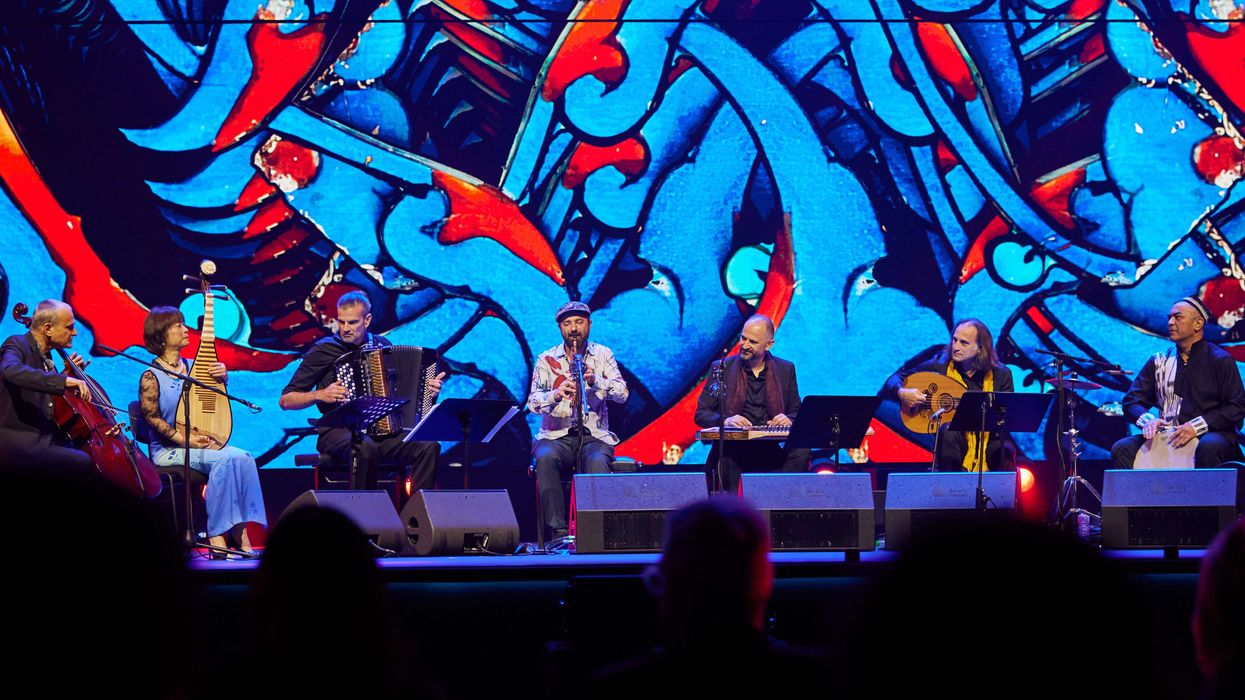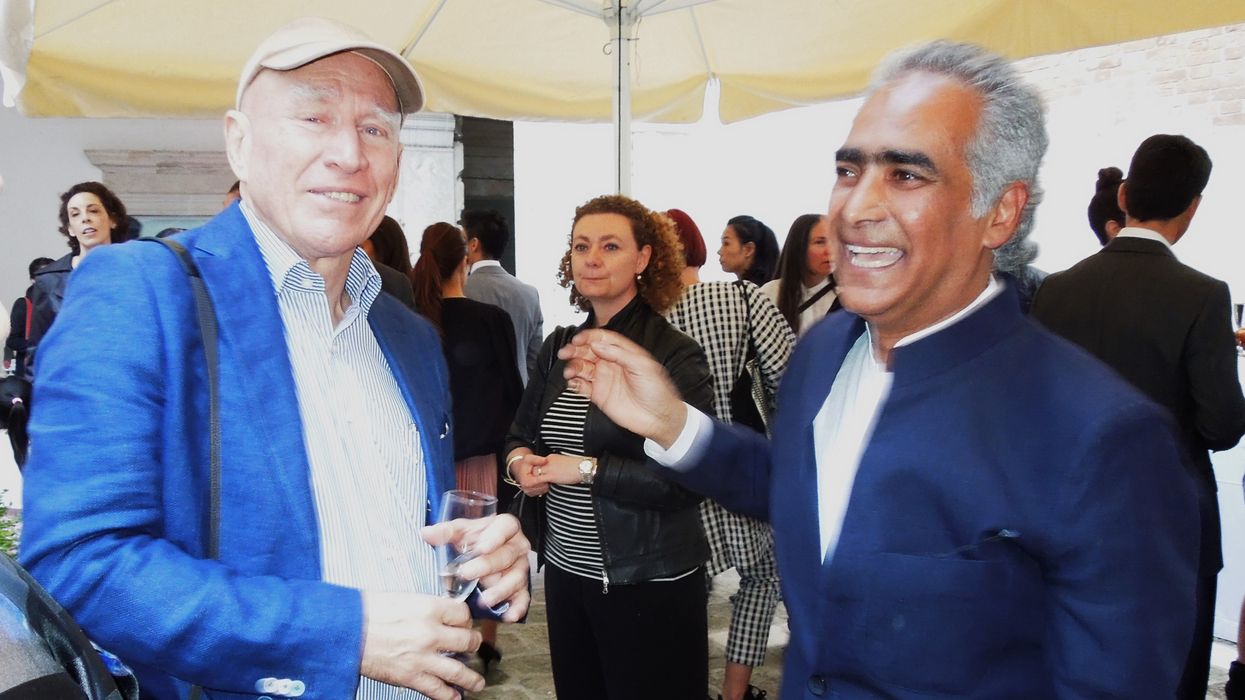ZAKIR HUSSAIN exuded beauty, his inner beauty. He was very soft, warm and affectionate. I’ve never seen him angry during my 45 years of association with him, except for once way back in 1990. He and I collaborated together for 20 years, and then he moved on. He took a larger stage.
I met Zakir when he was 22 in 1973 – he was five years my elder and he was already quite well known in the west. I had met his father (Ustad Alla Rakha) earlier.
Zakir used to play with a variety of groups, especially with John McLaughlin (an English guitarist, bandleader, and composer), Vikku Vinayakram (percussionist), and L Shankar (violinist, singer and composer). They founded the group called Shakti which celebrated its 50th anniversary in 2023. In the early 70s he was invited to America to teach at the Ali Akbar College of Music, however, his interaction with the west began quite early in his life.
He was a child prodigy. The moment he was born, he was inculcated in the art of the tabla by his father Ustad Alla Rakha and he had great tutelage under him. And he started playing with Pandit Ravi Shankar, Ustad Vilayat Khan, Ustad Ali Akbar Khan. He accompanied these great masters at a young age, when you have to be twice that age to play with such stalwarts, but he was so good.
He became a genius at a young age, and in time, he straddled the world with his art. He was comfortable with all forms of global music, but his forte was Indian classical music. He also played for dance performances, Kathak especially, and crossovers. In America, he played with lot of world-famous jazz musicians.
I started producing concerts in London, smaller concerts at first in the mid 1970s, and then bigger ones. I took him and Ali Akbar Khan saheb on a European tour of 17 concerts in 1980. Zakir had come earlier also in 1978 with Shivkumar Sharma (classical musician and santoor player) and Hari Prasad Chaurasia. And in 1980-1981 he had his music of India series. He asked me to commit time, so I produced that festival.
In 1982, I did the Camden International Festival, where he participated with Shiv Kumar Sharma and Chaurasia (music director and classical flautist). The following year, he performed with Ghulam Ali (Pakistani ghazal singer of the Patiala Gharana) at the Royal Albert Hall. And in 1984 he took his father’s place in America so that his father could come to UK to perform with Pandit Birju Maharaj. And then, of course, in 1986 was a great jugalbandi concert with his father with Ustad Sultan Khan on sarangi.
In 1990, he performed with Shivkumar Sharma at the Queen Elizabeth Hall in south London. Then the finale of my association was in April 1993 when in collaboration with Navras Records, we produced a UK wide tour with his percussion ensemble, which included great stalwarts like Ustad Alla Rakha, Ustad Sultan Khan (sarangi player and vocalist belonging to Sikar Gharana), Vikku Vinayakram, V Selvaganesh (percussionist working in the Carnatic tradition), and Bhavani Shankar (pakhawaj drum player) and Zakir himself leading the ensemble.
All in all, there were many concerts presented and through SAMA (Arts Network) 1977 – 1992 and in then in collaboration with Navras Records – (established in July 1992, it has one of the largest and most diverse catalogues among labels specialising in classical and traditional music from the Indian sub-continent).
Zakir was highly influential artist on and off stage as well as being a prodigy, he was a global phenomenon. And he took Indian music to great heights. A lot of people who did not know what Indian music learned about it through his tabla playing.
He was honoured with so many global awards. In India he started with the Padma Shri, then the Padma Bhushan and finally, the Padma Vibhushan. He got a global award from Tokyo, a very prestigious one. And the Aga Khan Award. He got huge awards in America for his contributions.
Traditionally, Zakir belonged to the Punjab gharana. But as time went on, he picked up lot of things from other gharanas. There are six tabla gharanas in India – Punjab, Benaras, Farrukhabad, Lucknow, Ajrada and Delhi. His father learned from Ustad Qadir Baksh. You can imagine the influence on Zakir.
With his collaboration covering all genres, he became a soughtafter musician rubbing shoulders with the world’s finest musicians.
Zakir came to London at least two to three times a year.
Both Zakir and I worked together, inspiring each other; this partnership increased his profile through concerts in UK, from the mid-1970s to 1993.
Much of the early recorded works via SAMA concerts are on the Navras Record label. And still, there are many recordings yet to be released. Navras Records has preserved a huge catalogue which is now under Sony India; some rare live performances are also yet to be released.
Jay Visvadeva is artistic director of SAMA Arts Network, one of the UK’s oldest and most influential arts organisations in the genre of traditional and contemporary south Asian arts and a founding member of Navras Records




